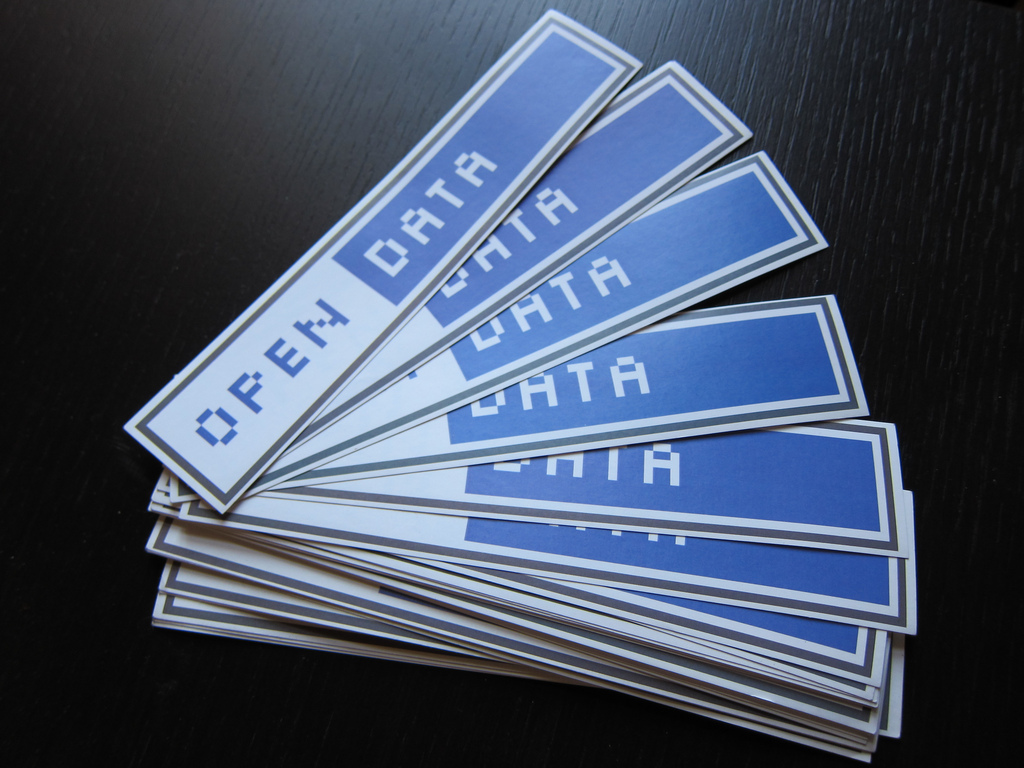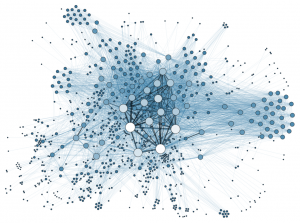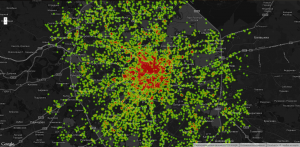Kenyan and German journalists team up in Nairobi
Twelve journalists from two countries in six teams = amazing stories. A recent DW Akademie media dialogue in Nairobi paired up Kenyan and German journalists for training and joint reporting. The mixed teams benefited from their different approaches and experiences, resulting in great ideas.
![]() read more
read more
Moving the camera and producing long features in African Stories II
As the African Stories project evolves, the television production teams working with DW Akademie are not only building on the skills they learned in the first series of training, but are now beginning to master new visual storytelling techniques for longer and more in-depth feature stories.
(Click on the Playlist above to watch the four feature stories produced during the workshop by the teams from NBC, MBC-TV, Muvi-TV and Multi TV.)
Following the recent workshop in Namibia, DW Akademie Project Manager André Surén talked to onMedia about how the African Stories team are training crews to produce stories in a reportage style that strives for more dynamic filming through moving the camera and following action.
![]() read more
read more
Cambodia sets pace with open data

Photo: flickr/jwyg
Accessing reliable data can be difficult, especially in the developing world. Good data might not exist in the first place, and if it does, it can be hard to come by or deliberately kept under lock and key by the powers-that-be. In Cambodia, an open data site is putting data in the hands of journalists and researchers – in fact, anyone who wants it – in an attempt to shine a light on a whole variety of issues.
![]() read more
read more
Tools & Apps for Journalists: Google search and other useful Google tools

Google has become an integral part of journalistic work. From Google search and Google Maps, to Gmail, Google Drive and YouTube, many of us use Google on a daily basis. Here’s a short overview of the most important Google tools for journalists.
![]() read more
read more
Verifying facts in the digital age
 Thanks to new technologies, journalists have information coming at them from all directions. They just have to turn on their phones or computers to find potential stories in calls, texts, emails and updates from all sorts of social media. This is fantastic for journalists, of course. But it does have a downside – journalists, especially news reporters, need to think carefully about how to separate fact from rumour and when to run with a story. Journalist Martin Vogl spent several years working in Africa for international broadcasters and is also a DW Akademie trainer. He has the following advice.
Thanks to new technologies, journalists have information coming at them from all directions. They just have to turn on their phones or computers to find potential stories in calls, texts, emails and updates from all sorts of social media. This is fantastic for journalists, of course. But it does have a downside – journalists, especially news reporters, need to think carefully about how to separate fact from rumour and when to run with a story. Journalist Martin Vogl spent several years working in Africa for international broadcasters and is also a DW Akademie trainer. He has the following advice.
![]() read more
read more
Journalists@work: Ilma Siriga
Ilma Siriga lives in Papua New Guinea (PNG), a remote tropical country in the South Pacific. She works as a program producer, presenter and reporter for PNG’s national television service, Kundu 2 TV. A fairly new television station, Kundu 2 TV only started up in 2008 and it still doesn’t reach all of PNG’s population, many of whom live in isolated villages in highland valleys.
Ilma has worked at the station for more than three years now. When her team is short-staffed, she not only reports stories but also does the filming and basic editing herself.
![]() read more
read more
Staying safer online – our best of digital safety list

Photo: flickr/CyberHades
DW Akademie devoted the whole of the week December 2- December 6, 2013 to the issue of Digital Safety for Journalists. As well as live online sessions on the topic, we also tackled issues on our digital safety blog important to reporters who want to or need to keep their activities away from prying eyes. Here is a list of some of the posts that can put you on the road to a more secure digital life.
![]() read more
read more
Hiding your online identity: Trialing Tor in Cambodia

Photo: flickr/WarzauWynn
All of this week, DW Akademie is exploring the topic of digital safety for journalists in a free open online workshop with live panel discussions and online sessions. Follow this link to participate in the live sessions from December 2 to 6. There you’ll also find more digital security posts like this one by journalist Kyle James, who takes the anonymous surfing tool Tor on a test drive in Cambodia.
Keeping your identity anonymous on the Internet can have major advantages. If you’re a political activist living in a country with a repressive regime, disguising your Internet identity might just keep you out of jail, and alive. Alternatively, if you’re a reporter working on a story your government doesn’t approve of, surfing anonymously can help you bypass your country’s censorship or filters.
One of the best known and easy-to-use systems for doing this is Tor. But Tor has some disadvantages – many complain it slows down their surfing. So what happens when you use it somewhere like Cambodia that already has slow internet?
![]() read more
read more
Calling for applications for data-driven journalism workshop, Cambodia

Photo by Calvinius via Wikimedia Commons
DW Akademie will conduct a two-week workshop on data-driven journalism in the Cambodian capital, Phnom Penh from January 20 – 31, 2014.
Cambodian journalists, citizen journalists, IT or social media specialists, journalism students and journalism trainers are invited to apply to take part in this training course.
You can find out more about the workshop and download the application documents below.
Please note that the application deadline for the workshop has been extended to Tuesday, December 31, 2013.
1 Call for Applications ‘Data-driven Journalism’
2. Project Outline ‘Data-driven Journalism’
3 Application Form ‘Data-driven Journalism’
4. Employers Declaration ‘Data-driven Journalism’
Good luck with your applications and feel free to share information about the workshop with others who might be interested.
Hackdays and digital product managers: a conversation with the Global Editors Network
In order to boost innovation and encourage new strategies about news presentation, the Global Editors Network (GEN) and Russian news agency RIA Novosti held a Hackday on Dec. 10-11 in Moscow. Called “Hack the Newsroom,” the event brought together three-person teams made up of an editor or journalist, a developer and a designer from national and regional Russian media organizations.
It was one of a series of such hackdays held at some of the globe’s leading newsrooms this year. The aim is to help newsrooms develop new approaches to producing and presenting editorial content and think creatively about apps, interactivity, data visualization and newsgaming projects.
“There are a lot of innovations in newsrooms, but they don’t often come from the editorial side,” said Antoine Laurent, GEN’s deputy director. “To deliver innovative content on a regular basis, you need to have a direct connection between the technical and editorial sides. Innovation comes from collaboration.”

The winning project
This time, it was all about big data and data journalism. Participants had to turn open data into compelling stories. As a result, participants came up with projects mostly based on national data.
You can watch the presentation of the final pitches here (in Russian). The winning project was developed by the team from the Moscow-based magazine “Bolshoi Gorod” (“Big City”). They presented an interactive map of Moscow showing where city residents spend their free time based on based on 126,000 of check-ins by users of VK, a popular Russian social networking site.
In this interview, Laurent told onMedia why he thinks data journalism is here to stay, why GEN is holding a series of hackdays and how journalists will need to manage digital content in the future.
![]() read more
read more






 By
By 



Feedback